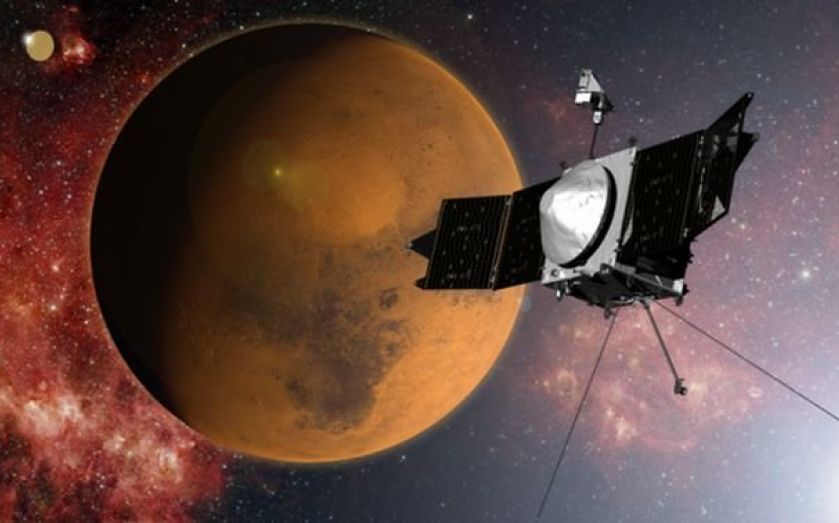| Updated:
Could humans live on Mars? Nasa’s MAVEN joins mission to find out

When the Earth becomes too hot, it is hoped humans might be able to live on Mars. With its relatively hospitable conditions and the possible presence of water, our neighbouring planet currently seems like the best bet for humankind's continued existence.
But for this to happen, we need to understand exactly what conditions are like, and as of last night Nasa's MAVEN became the latest mission to take on this task.
Over the last ten months, it has been whizzing towards Mars from Earth, covering a distance of 442 million miles in the process – that's the equivalent of travelling around earth 17,750 times.
At around 9.50pm on Sunday it finally reached Mars, fired up its brakes and successfully entered orbit around it.
“Based on observed navigation data, congratulations, MAVEN is now in Mars orbit,” came the official announcement.

Artist's impression of MAVEN approach (Source: Nasa)
For the next (earth) year it will collect data on Mars' atmosphere, dipping down to 78 million miles above the surface as its complex instruments take measurements and draw conclusions about how it went from being warm and wet billions of years ago to cold and dry.
The scientists hope to discover where all the water on early Mars disappeared to, along with the carbon dioxide that once led an atmosphere thick enough to host moist clouds. It is thought that the early moist world may have harboured microbial life – a question yet to be answered.
Join the party
There are already three spacecraft circling Mars – two American and one European. India's probe, Mangalyaan, will also get involved when it reaches Mars in two days' time.
On the ground, meanwhile, the Mars Curiosity rover is busy analysing the surface. Earlier this month it arrived at a mountain named Sharp – a prime spot for drilling and investigation.
MAVEN is 11.43 metres in length and carries a mass of 903kg. It was jointly constructed by Lockheed Martin; the University of Colorado, Boulder; the University of California, Berkley; and Nasa's Goddard Space Flight Center in Greenbelt, Maryland.